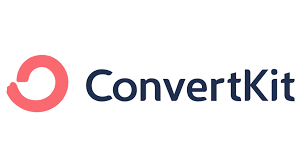Welcome to the definitive guide where we unravel the mysteries of two leading email marketing tools: ConvertKit and dotdigital Engagement Cloud. In this digital era, where email marketing continues to be a vital artery for business communication, choosing the right tool can be the difference between thriving and merely surviving. In this article, we will dissect these platforms, focusing on their key features, to help you decide which one aligns best with your 2024 marketing goals. Let’s dive in with our first area of comparison.
| ConvertKit | dotdigital Engagement Cloud |
|---|---|
 |  |
| G2 Score – 4.4 out of 5 stars | G2 Score – 4.3 out of 5 stars |
| TrustRadius Score – 8.8 out of 10 | TrustRadius Score – 7.6 out of 10 |
User Experience and Interface: A Tale of Two Platforms
When it comes to email marketing tools, the user experience (UX) and user interface (UI) are critical. They determine not just how you interact with the platform but also how efficiently you can execute your campaigns. ConvertKit and dotdigital Engagement Cloud offer contrasting experiences in this regard.
ConvertKit: Simplicity and Creator-Friendly
ConvertKit has carved out a niche for itself as a user-friendly platform, especially appealing to creators, bloggers, and small business owners. Its interface is clean, uncluttered, and intuitive, making it a favorite for those who prefer simplicity over complexity.
Navigating through ConvertKit is a breeze. The dashboard is straightforward, and every feature is just a few clicks away. Setting up an email campaign is almost self-explanatory. You pick your audience, draft your email with an easy-to-use editor, and you’re set to go. This ease of use is ConvertKit’s biggest strength, as it allows creators to focus more on their content and less on figuring out how to use the tool.
The beauty of ConvertKit lies in its minimalistic approach. It doesn’t overwhelm you with too many options or complicated jargon. This makes it an ideal choice for individuals who are either new to email marketing or those who wish to get their work done without getting entangled in complex functionalities.
dotdigital Engagement Cloud: Rich in Features and Flexibility
On the flip side, dotdigital Engagement Cloud caters to a different audience, primarily medium to large-sized businesses looking for a comprehensive email marketing solution. The platform is feature-rich, offering a range of tools from advanced segmentation to detailed analytics.
The user interface of dotdigital is more sophisticated. It offers a plethora of options and settings, which, while powerful, can be overwhelming for a new user. However, once you get the hang of it, the possibilities are endless. You can customize every aspect of your email campaigns and automate them with precision, something that larger businesses with diverse marketing needs will appreciate.
dotdigital’s strength lies in its flexibility and the depth of its features. For businesses that require a high degree of customization and are looking for an all-in-one marketing platform, dotdigital Engagement Cloud offers an environment where every marketing aspiration can be realized, albeit with a steeper learning curve.
Verdict
In this first area of comparison, we see that ConvertKit and dotdigital Engagement Cloud cater to different user bases with their unique UX/UI designs. ConvertKit is ideal for those who value simplicity and ease of use, making it perfect for individual creators, bloggers, and small businesses. dotdigital Engagement Cloud, with its advanced capabilities and feature-rich interface, is more suited for larger businesses that require a more robust email marketing platform.
Deliverability: Ensuring Your Message Reaches Its Destination
In the complex world of email marketing, deliverability is the unseen hero. It’s not just about sending emails; it’s about making sure they land in the right inbox and not in the dreaded spam folder. ConvertKit and dotdigital Engagement Cloud offer distinct deliverability features suited to their target audiences.
ConvertKit: Prioritizing Reliable Delivery
ConvertKit has built a reputation for high deliverability rates, a crucial factor for creators and small businesses. The platform achieves this through a blend of technology and best practices guidance.
A key strength of ConvertKit is its focus on maintaining a strong sender reputation. The platform offers extensive resources to help users understand and follow email marketing best practices. This includes advice on creating engaging content, avoiding spam triggers, and keeping subscriber lists clean and engaged. ConvertKit’s proactive approach in educating its users about these practices plays a significant role in ensuring high deliverability rates.
Another aspect where ConvertKit shines is in its simplicity of email design. ConvertKit encourages the use of straightforward, text-based emails, which tend to have higher deliverability than emails overloaded with images and complex HTML. This approach aligns well with their target audience, who often prefer content-focused emails that feel personal and authentic.
dotdigital Engagement Cloud: Sophisticated Deliverability Tools
dotdigital Engagement Cloud, catering to a larger and more diverse business clientele, offers a more comprehensive set of deliverability tools. The platform is designed to handle the high-volume and diverse email marketing needs of medium to large-sized businesses.
One of the highlights of dotdigital is its advanced segmentation and personalization capabilities, which contribute significantly to deliverability. By allowing businesses to send highly targeted and relevant emails, dotdigital helps in maintaining subscriber engagement, a key factor in avoiding spam filters and maintaining a healthy sender reputation.
Moreover, dotdigital provides detailed analytics and reporting on email performance, including deliverability metrics. This data is crucial for businesses to continuously optimize their email strategies and ensure their messages are reaching their audience effectively.
Verdict
In the battle of deliverability, both ConvertKit and dotdigital Engagement Cloud demonstrate their strengths, tailored to their respective audiences. ConvertKit is ideal for those who need reliable deliverability with a straightforward approach, particularly appealing to creators and small businesses. dotdigital Engagement Cloud, with its advanced tools and detailed analytics, is better suited for larger businesses that require a more robust and technical solution to manage their complex email marketing needs.
Analytics and Reporting: Gleaning Insights from Data
In the digital marketing landscape, the power of analytics and reporting cannot be overstated. They are vital in understanding the effectiveness of your email campaigns and shaping future strategies. ConvertKit and dotdigital Engagement Cloud offer different levels of analytics and reporting, each catering to their specific audience.
ConvertKit: Streamlined Analytics for Creators
ConvertKit’s approach to analytics is all about simplicity and clarity. The platform provides straightforward analytics that are easy to understand and act upon, making it a perfect fit for creators and small businesses.
When you dive into ConvertKit’s analytics, you won’t be bombarded with overwhelming data. Instead, you get a clear view of the essential metrics like open rates, click-through rates, and subscriber growth. This simplicity in analytics is invaluable for users who need to quickly assess their campaign’s performance and make decisions without getting lost in a sea of data.
Moreover, ConvertKit offers insights that are particularly relevant to creators and bloggers, such as which content is resonating most with their audience. These insights are not just numbers; they are actionable pieces of information that can help in tailoring content strategy and improving audience engagement.
dotdigital Engagement Cloud: Comprehensive Data Analysis
On the other end of the spectrum, dotdigital Engagement Cloud offers a more comprehensive and detailed analytics suite. Designed for medium to large-sized businesses, dotdigital’s analytics tools are robust, providing deep insights into every aspect of email marketing campaigns.
dotdigital’s platform allows for granular analysis of campaign performance, including detailed segmentation performance, engagement metrics, and behavioral insights. These insights go beyond basic email metrics, enabling businesses to understand the nuances of customer interactions and preferences.
Furthermore, dotdigital offers predictive analytics, a powerful tool for anticipating future trends and customer behaviors. This level of detailed analytics is a boon for larger businesses with complex marketing strategies, as it allows them to make data-driven decisions and stay ahead of the curve in their email marketing efforts.
Verdict
In terms of analytics and reporting, ConvertKit and dotdigital Engagement Cloud cater to different needs. ConvertKit is ideal for those who require straightforward, actionable insights to quickly adapt and refine their strategies, particularly suited for creators and small businesses. dotdigital Engagement Cloud, with its comprehensive and in-depth analytics, is more appropriate for larger businesses that require detailed data analysis to inform complex marketing strategies.

Related: Check out our free SEO suite

Pricing and Value for Money
In the dynamic world of email marketing, the pricing strategy of a platform can greatly influence your choice. It’s essential to find a balance between the features offered and the investment required. ConvertKit and dotdigital Engagement Cloud, each in their respective niches, have distinct pricing models designed to meet the needs of their target audiences.
| ConvertKit | Free Plan: Offers basic features for up to 1,000 subscribers, including email broadcasts, landing pages, and forms. Creator Plan: Starting at $29/month for up to 1,000 subscribers, including automation and third-party integrations. The price increases with more subscribers. Creator Pro Plan: Starting at $59/month for up to 1,000 subscribers, adding advanced features like newsletter referral system, subscriber scoring, and advanced reporting. |
| dotdigital Engagement Cloud | Essential Plan: Designed for small and growing businesses, includes basic email marketing features. Pricing starts at around $250/month for up to 5,000 contacts. Business Plan: Aimed at mid-sized businesses, offers advanced features like automation, segmentation, and reporting. The pricing is custom and based on the volume of emails and contacts. Enterprise Plan: Tailored for large organizations, includes all features in the Business plan plus additional services. Pricing is custom and based on the business requirements. |
ConvertKit: Affordability for Creatives and Small Businesses
ConvertKit understands the budget constraints often faced by creators, bloggers, and small businesses. Therefore, its pricing structure is designed to be accessible while offering significant value.
The platform operates on a subscriber-based pricing model. This transparent approach means that the cost scales with your subscriber list, making it easier for small businesses and creators to predict and manage their expenses. The simplicity and predictability of this model are particularly appealing to those just starting or looking to grow their audience without a hefty initial investment.
ConvertKit also offers a free plan with basic features, which is a great starting point for those new to email marketing. This plan allows users to build a subscriber list and engage with their audience at no cost, providing a taste of the platform’s capabilities before committing to a paid plan.
dotdigital Engagement Cloud: Comprehensive Solutions for Larger Operations
dotdigital Engagement Cloud, targeting a more diverse and larger business clientele, offers a pricing structure that reflects its comprehensive feature set. The platform is geared towards businesses that require an extensive suite of email marketing tools and advanced functionalities.
The pricing for dotdigital is typically customized based on the specific needs and scale of the business. This includes factors like the number of contacts, email volume, and the range of features required. For medium to large-sized businesses, this custom pricing model ensures that they pay for exactly what they need, making it a cost-effective solution for larger scale operations.
While the pricing for dotdigital may be higher than ConvertKit, it is justified by the breadth and depth of its capabilities. For businesses that require sophisticated segmentation, detailed analytics, and high deliverability rates, dotdigital offers a robust platform that can effectively support their extensive marketing needs.
Verdict
When it comes to pricing and value for money, ConvertKit and dotdigital Engagement Cloud cater to different market segments. ConvertKit offers an affordable, transparent pricing model, making it an attractive option for individual creators, bloggers, and small businesses. On the other hand, dotdigital Engagement Cloud provides a more customized pricing approach, suited for larger businesses and enterprises that need a comprehensive and feature-rich email marketing platform.
Customer Support and Community Engagement
The level of customer support and the strength of community engagement are significant factors that can greatly enhance the value of an email marketing tool. ConvertKit and dotdigital Engagement Cloud approach these aspects with strategies tailored to their specific audiences.
ConvertKit: Personalized Support for Creators
ConvertKit has gained a reputation for its exceptional customer support, which is particularly tailored to the needs of creators, bloggers, and small businesses. This support is crucial for users who may not have extensive technical expertise or dedicated marketing teams.
ConvertKit offers various channels for customer support, including email and live chat, ensuring that help is readily accessible. The responses are known for being not only prompt but also personalized, addressing the unique needs and concerns of each user. This level of personalized attention is a standout feature for a platform catering to individual creators and small businesses.
In addition to direct support, ConvertKit emphasizes community engagement. The platform hosts webinars, workshops, and maintains an active community forum where users can share experiences, learn from each other, and find collaboration opportunities. This community aspect enriches the user experience, providing a space for learning and growth beyond the technicalities of email marketing.
dotdigital Engagement Cloud: Comprehensive Support for Businesses
dotdigital Engagement Cloud, serving a more diverse and larger business clientele, offers a comprehensive customer support system designed to handle a wide range of queries, from basic troubleshooting to complex strategic advice.
The platform provides extensive support through multiple channels, including phone support, which is a crucial requirement for larger businesses. The support team at dotdigital is equipped to offer detailed, technical assistance, catering to the complex needs of medium to large-sized businesses. This level of support is essential for businesses that rely heavily on their email marketing tools for large-scale operations.
Additionally, dotdigital offers a wealth of resources, including detailed guides, webinars, and best practice tips, all aimed at helping businesses optimize their use of the platform. While dotdigital may not have a community-focused approach like ConvertKit, it excels in providing tailored support and resources for business growth and scalability.
Verdict
In customer support and community engagement, ConvertKit and dotdigital Engagement Cloud excel in ways that align with their target audiences. ConvertKit offers personalized support and a strong sense of community, making it ideal for creators, bloggers, and small businesses. In contrast, dotdigital provides comprehensive, business-focused support and resources, catering well to the needs of larger businesses and enterprises.
Advanced Automation Capabilities
ConvertKit: Simplifying Automation for Creators
ConvertKit makes automation accessible even to those who are new to email marketing. It offers a straightforward automation builder that allows users to create automated email sequences with ease. This feature is especially useful for creators who want to set up welcome series, course deliveries, or automated sales funnels. The platform’s automation tools are designed to be intuitive. You can easily set up triggers based on subscriber actions, like signing up for a newsletter or purchasing a product. ConvertKit’s automation helps in efficiently managing subscriber journeys without needing complex technical knowledge.
dotdigital Engagement Cloud: Advanced and Customizable Automation
dotdigital Engagement Cloud takes automation to a higher level with more advanced and customizable options. It’s designed for businesses that need sophisticated automation strategies. The platform allows for the creation of complex multi-step and multi-channel automation programs. With dotdigital, businesses can automate their entire customer lifecycle, from lead generation to post-purchase follow-ups. The automation can be customized based on a wide range of customer behaviors and preferences, providing a highly personalized customer experience.
Final Verdict
As we wrap up this comprehensive exploration of ConvertKit and dotdigital Engagement Cloud, it’s clear that both platforms offer robust and unique features tailored to their respective audiences. The decision on which tool is best for you in 2024 hinges on your specific needs, business size, and marketing goals.ConvertKit emerges as a top choice for individual creators, bloggers, and small businesses. Its strength lies in its simplicity, ease of use, and creator-focused features. The platform excels in delivering straightforward automation, intuitive user experience, and effective engagement tools that are perfect for those looking to grow their audience and establish a personal connection through email marketing.
dotdigital Engagement Cloud, on the other hand, is a powerhouse suited for medium to large businesses requiring a more advanced and feature-rich email marketing solution. Its strengths include sophisticated automation capabilities, extensive integration options, and advanced analytics. For businesses that need to manage complex, data-driven email marketing campaigns across multiple channels, dotdigital offers a comprehensive and scalable solution. In conclusion, both ConvertKit and dotdigital Engagement Cloud stand out in the 2024 email marketing landscape, but they cater to different needs.
Your choice should align with your business’s scale, the complexity of your email marketing requirements, and the level of customization and automation you need. By carefully considering these factors, you can select the platform that will best support your email marketing strategies and drive your business forward.
Read Next
- The Importance of Building Authentic Relationships in Influencer Marketing
- Influencer Marketing for Digital Tools and Software: Engaging with Tech Influencers
- The Role of Webinars and Live Events in Influencer Marketing Success
- Influencer Marketing for the Food and Beverage Industry: Collaborating with Food Bloggers and Chefs
- The Power of Micro-Influencers in Influencer Marketing






















Comments are closed.